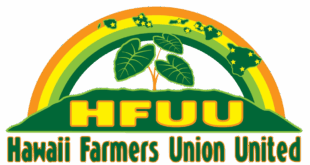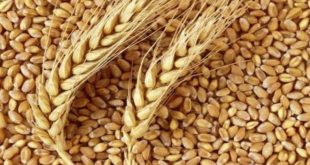Approximately 92 per cent of the world’s pine honey production comes from the red pine forests along Türkiye’s Aegean coast, primarily produced by the Muğla ecotype of the Anatolian bee breed.
The sap secreted by the pine woolly aphid (Basra), which lives on red pine trees and feeds on the tree’s sap, is collected by bees and transformed into pine honey.

This unique production process gives pine honey its distinctive flavour and high value.
In 2021, the fires that swept across the Aegean coast caused a significant decline in the pine honey harvest. This is because the fires not only destroyed pine forests but also severely damaged the pine woolly aphid, a species of critical importance in pine honey production. However, nature regenerated itself, the pine forests began to repair themselves, and the pine woolly aphid (Basra) also regained its strength, multiplied, and returned to its former productivity.
Thanks to the intensive efforts of Balparmak, which has enabled honey and bee products to become an industry in Türkiye and is celebrating its 45th anniversary this year, and other stakeholders, Turkish Pine Honey, which recently received geographical indication status, is now ready to demonstrate its value on the international stage. Stating that pine honey producers are smiling this year, Balparmak Chairman of the Board Özen Altıparmak said, ‘Now it is time to work together to ensure that Turkish Pine Honey finds its rightful value in the world. You will see that Turkish Pine Honey will soon be one of the most sought-after honeys on the international stage.’
Pine honey, a type of secretion honey unique to our country, accounts for approximately 92 per cent of the world’s total harvest and is produced mainly in the red pine forests along the Aegean coast by the Muğla ecotype honeybee, which is predominantly of the Anatolian bee breed. Pine honey, one of Turkey’s most important bee products in terms of both production volume and commercial contribution, is also among the leading honey varieties in exports. Experts note that Turkish Pine Honey, with its unique properties, is a candidate for the medicinal honey category and has the potential to rival Manuka honey in this regard.

The geographical indication registration obtained by the Turkish Patent and Trademark Office in recent months has both protected the local identity of this valuable product and provided assurance in the international market. Balparmak’s ‘Pine Honey Harvest’ event in Muğla was a special organisation that reflected this registration in the field.
At the event, guests witnessed the hard work of beekeeping families at the hives and experienced first-hand the journey of honey from nature to the table. The harvest, which took place in the red pine forests, highlighted both the difficulties of beekeeping and the value of labour. At the apiary where the honey harvest took place, the removal of the combs from the hives, the golden colour of the honey, and the unique scent of nature turned into an unforgettable experience for the guests.
Özen Altıparmak, Chairman of the Board of Directors of Balparmak, emphasised the significance of this year’s harvest with the following words: “The geographical indication certification of Turkish Pine Honey has added great value not only to the sector but also to our country’s agricultural and food heritage. For us, this process goes beyond commercial gain; it is also a demonstration of our responsibility towards nature and beekeepers. Turkey is the homeland of pine honey. Ninety-two per cent of the world’s pine honey production takes place in our country. Pine honey is produced in the Aegean coastal regions, where red pine forests are widespread. Pine honey is also the livelihood of thousands of beekeeping families. Since our establishment, one of Balparmak’s key objectives has been to secure the future of beekeeping and support its sustainability. That is why we launched the Beekeeping Academy, supporting the high-quality and efficient production not only of honey but also of value-added products such as royal jelly, pollen, and propolis.
The New C4 Method Opening the Way for Exports
One of the highlights of the harvest organisation was the new C4 method developed by the Balparmak R&D Centre specifically for pine honey. As is well known, the C4 test, which is the standard used worldwide to detect adulteration in honey, was not suitable for the structure of pine honey. As a result, pine honey has faced unfair barriers in international markets for years, encountering problems in export despite being natural.

The new analysis method, developed by the Balparmak R&D Centre after four years of scientific research taking into account the unique structure of pine honey, has solved this problem by being included in TSE standards. Thus, the naturalness of Turkish Pine Honey has been scientifically documented, greatly increasing its exports.
Turkish Pine Honey Receives Geographical Indication Registration
Regarding the registration of pine honey, a type of secretion honey unique to our country, as Turkish Pine Honey, Balparmak General Manager Ulaş Altıparmak emphasised that the process was carried out through a multi-stakeholder cooperation model, stating:
“The geographical indication process, carried out jointly with the support of the FAO and other sector stakeholders, has been a strong example of solidarity for the future of Turkish honey. Furthermore, thanks to the new C4 method we have developed, Turkish Pine Honey will be able to achieve its deserved value in exports. This is not only a gain for Balparmak, but for the entire beekeeping sector and our country. Our R&D centre now has the most comprehensive infrastructure of four equivalent honey specialised laboratories in Europe. We analyse at least 8,000 honey samples every year in our Honey and Other Bee Products Research and Quality Control Laboratory. With our four-stage quality control system, we safeguard the future of the sector through scientific methods, preserving the naturalness of both honey and other bee products. We continue to carry out science-based studies, highlighting the naturalness and place of Turkish Pine Honey in quality living, and to pursue our investments in innovation and technology.
Academy for the Sustainability of Beekeeping

Another important topic discussed during the harvest organisation was the future of beekeeping. Guests who witnessed the production process of pine honey first-hand once again observed the critical value that beekeeping families bring to our country by continuing this profession. Balparmak does not stop at just developing products; the Beekeeping Academy, established for this purpose, aims to introduce modern techniques to beekeepers while specifically targeting the inclusion of women and young people in the sector.
Dr Emel Damarlı, Director of R&D and Quality, conveyed the importance of the programme with the following words: “Our aim is to support beekeepers not only in honey production but also in the efficient production of value-added products such as royal jelly, pollen and propolis. In this way, we are making the beekeeping profession more sustainable and leaving a strong legacy for the future. Beekeeping is not just a family business, it is a profession carried on by the village community. It is as important a legacy as olive trees.”
Türkiye’s Unique Legacy
The 2025 Pine Honey Harvest in Muğla symbolised not only the bounty of the season but also the rising value of Turkish Pine Honey in international markets. This special event, coinciding with Balparmak’s 45th anniversary, provided an opportunity to showcase our country’s unique heritage to the world and highlighted the contribution of scientific research to exports…

By Özen Altıparmak,
Chairman of the Healthy Living with Bee Products Platform Association (BALDER)
Source: www.tgdf.org.tr
 THE GLOBAL WINDOW OF TURKISH FOOD AND AGRICULTURE The Global Window of Turkish Food and Agriculture Sector
THE GLOBAL WINDOW OF TURKISH FOOD AND AGRICULTURE The Global Window of Turkish Food and Agriculture Sector








